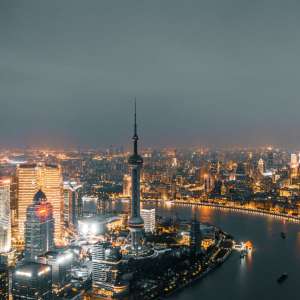Comprehensive Guide to Prohibited Items importing to Indonesia
Latest update on 11 June, 2024 by Aurora Park– Marketing Analyst at FreightAmigo
Understanding import restrictions in Indonesia is crucial for businesses and individuals shipping goods. This comprehensive guide explores prohibited items, restrictions, and special cases, providing the necessary knowledge to navigate the import process and ensure compliance with local regulations.
Want To Compare The Best Express, Air Freight, Sea Freight, Rail Freight & Trucking Rates So As To Have Better Control On Cost?
Commonly Prohibited Items
In Indonesia, a variety of items are prohibited from import to protect public health, safety, and the environment. These include hazardous materials such as explosives, dangerous chemicals, radioactive substances, and asbestos. The import of narcotics, psychotropic chemicals, and their precursors is strictly forbidden to curb illegal drug trafficking. Additionally, weapons and ammunition, including firearms and war accessories, are not allowed. Indonesia also bans the import of pornographic materials and certain used goods like clothing and electrical equipment. Specific foods and drugs that fail to meet safety standards, as well as ozone-depleting substances like CFCs and HCFCs, are also on the prohibited list. Cultural heritage goods require official permission before they can be imported to ensure the preservation of the nation’s historical assets.
Restricted Items and Conditions
In Indonesia, the import of certain goods is tightly controlled under the LARTAS list, as outlined in MoT Regulation 18/2021. Importers must verify restrictions via the INSW portal, which details prohibited items such as finished hand tools, sugar, and various hazardous materials. It is crucial to check the specific requirements for each category, including necessary certifications and alignment with the Harmonized System (HS) Code, especially for products requiring halal certification.
Furthermore, Regulation 36/2023 distinguishes between goods imported for business, which may bypass certain restrictions like import business licensing and verification, and those not for business use, which adhere to stricter controls. This regulation also specifies conditions under which used goods can be imported by Indonesian migrant workers without standard import restrictions, facilitating easier personal shipment processes.
Special Cases and Unusual Prohibitions
In our exploration of import restrictions to Indonesia, we encounter unique and specific prohibitions that may seem unusual to those unfamiliar with local regulations. For instance, the import of newspapers and printed products from outside regions is restricted, aimed at protecting domestic publishing industries. Similarly, toy or replica guns are banned to prevent confusion and potential security issues. Another notable prohibition is on gambling devices, which aligns with Indonesia’s strict laws against gambling.
Additional peculiar bans include the import of used clothing and certain types of hazardous waste, which pose environmental and health risks. The prohibition extends to specific chemicals like Ethylene Dibromide and other substances used in pesticides, reflecting Indonesia’s commitment to environmental safety. Even items like shrimp of the Penaeus Vannamei variety are restricted, likely due to concerns over disease and impact on local biodiversity.
These regulations underscore Indonesia’s cautious approach to imports, ensuring that goods entering the country meet stringent safety, health, and cultural standards.
Conclusion
Throughout this guide, we’ve navigated the intricate framework of Indonesia’s import regulations, underscoring the critical need for compliance with the nation’s prohibitions and restrictions on various items. From the outright bans on hazardous materials, narcotics, and culturally offensive content to the tightly controlled restrictions on certain goods and special cases, we’ve illustrated the essential considerations businesses and individuals must keep in mind when looking to import goods into Indonesia. Understanding these regulations is not just about avoiding penalties; it’s about ensuring the smooth and uninterrupted flow of goods into this vibrant market.
As we conclude, remember that the landscape of import regulations is subject to change, and staying informed is key to successful import operations. For those seeking assistance in navigating these complexities, partnering with reliable logistics platforms like FreightAmigo can offer invaluable support, ensuring that your shipments comply with all local regulations and requirements. By arming yourself with the knowledge provided in this guide and leveraging expert services, you can confidently approach the Indonesian market, fully prepared for the challenges and opportunities that lie ahead.
If You Wish To Import To Indonesia, Please Go To The FreightAmigo Page For Inquiries
Read more:
Prohibited and Restricted Items for Importing into France | FreightAmigo
Prohibited and Restricted Items Importing to the UK | FreightAmigo
Prohibited and Restricted Items for Importing to Taiwan | FreightAmigo
If you have any inquiries on logistics / supply chain, feel free to contact FreightAmigo now:
Chat with us online | Hotline: +852 28121686 | WhatsApp: +852 27467829









































